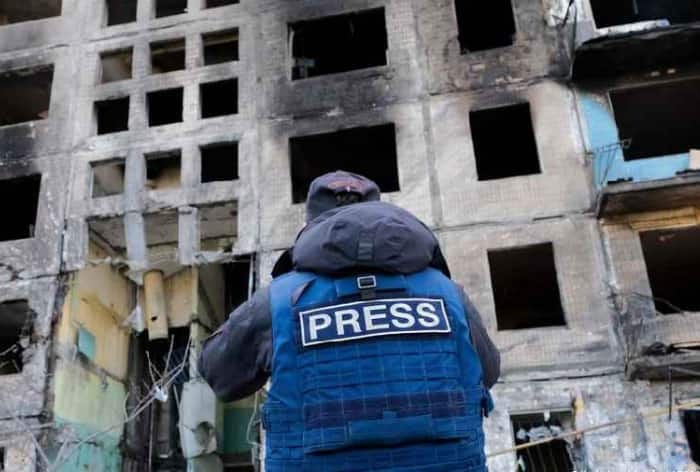
[ad_1]
UNESCO wrote that the number of journalists killed in war zones has doubled compared to the last three years, adding that at least two journalist deaths had occurred in each of the following countries: Afghanistan, Syria, Cameroon, and Ukraine.

Kabul: In its yearly evaluation, the United Nations Educational, Scientific, and Cultural Organisation (UNESCO) has determined that 2023 was the deadliest year for journalists covering war-torn nations, according to a TOLOnews report. UNESCO wrote that the number of journalists killed in war zones has doubled compared to the last three years, adding that at least two journalist deaths had occurred in each of the following countries: Afghanistan, Syria, Cameroon, and Ukraine.
Audrey Azoulay, UNESCO Director-General, in this press release said: “I pay tribute to all of these media professionals and reiterate my call to all actors involved to mobilize the necessary means to guarantee the protection of journalists as civilians, as stipulated in international law.”
However, the Taliban refuted the claims made by UNESCO and said that no journalist has been killed in Afghanistan in the past year. “In the past year, no journalist has died, and Israel has the highest number and statistics in this area,… a large number of journalists were killed in Gaza, and this crime is the responsibility of the countries that support Israel and they should be questioned. In Afghanistan We have no casualties from the media and media people,” Zabiullah Mujahid, a senior Taliban official said, according to TOLOnews.
Meanwhile, a few journalists requested that the Taliban handle the issues facing journalists in the nation more effectively. “Since journalists in the current situation are a reliable bridge between the people and the Islamic Emirate of Afghanistan, our request is that in terms of ensuring the security of journalists and providing work facilities in the city and in news centres with the journalists of the Islamic Emirate, we should have serious cooperation so that journalists can do their work efficiently and with a peaceful mind,” said Daud Nazari, a journalist, TOLOnews reported.
“We want the current government to pay serious attention to the safety of journalists,” said Sayed Hashem Kashefi, a journalist.
The Afghan Independent Journalists Association (AIJA), however, expressed optimism that the issues facing journalists will be resolved in the next year. “We are trying to make 2024 a good year for Afghan journalists and media,” said Farhad Behroz, deputy head of the Afghan Independent Journalists Association.
Recently, the Pakistani government’s deportation of unauthorised Afghan migrants has drawn criticism from Reporters Without Borders (RSF), which has said that 200 Afghan journalists are now in danger of being deported as well, according to Khaama Press.
Reporters Without Borders (RSF) said in a statement that they have spoken with a number of journalists who have reported experiencing severe violence as a result of the Pakistani government’s decision to remove Afghan migrants.
Earlier in April, journalists in Afghanistan once again denounced the lack of access to information under the Taliban regime in the country and said that it results in their loss of timely coverage. They also said that the de-facto authorities are not cooperating with them in any manner.
Lack of access to information has been one of the main challenges for journalists in Afghanistan since the Taliban took control of the country in August 2021.
The ever-increasing restrictions against media in Afghanistan have also drawn widespread criticism globally with the United Nations (UN) and the Committee to Protect Journalists (CPJ) decrying the arrests, demanding the Taliban stop harassing local journalists and stifling freedom of speech through continued detentions and threats.
Since the Taliban took over Afghanistan in mid-August last year, it rolled back women’s rights advances and media freedom revoking the efforts on gender equality and freedom of speech in the country.
[ad_2]